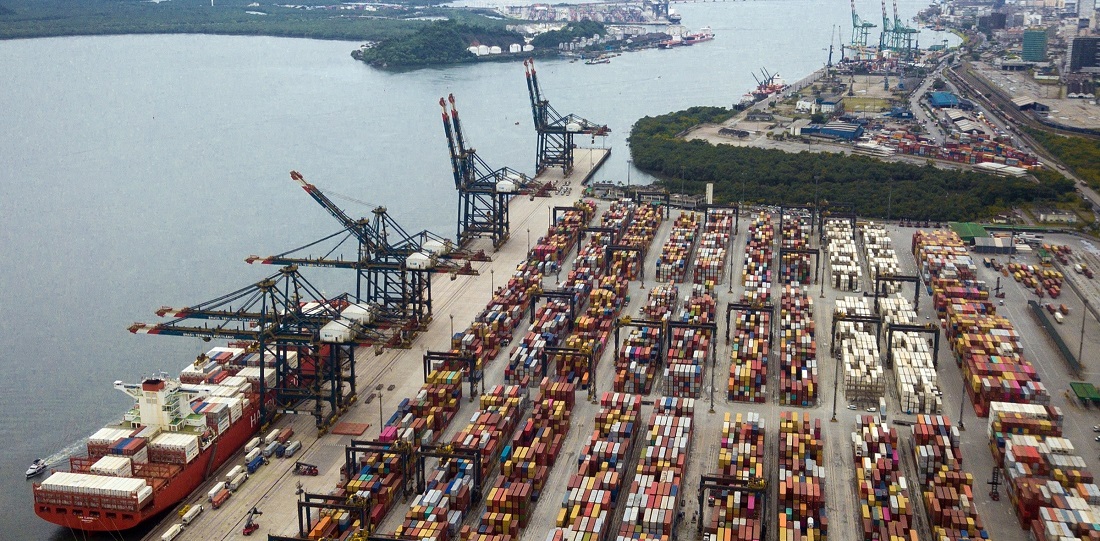
Brazil fiscal agents maintain protest despite demands heard
Jun, 17, 2022 Posted by Gabriel MalheirosWeek 202224
Not even the Federal Government’s decision to hold a public tender to fill almost 700 job vacancies in the Federal Revenue Service managed to convince its fiscal agents to end the work-to-rule protest in place since December 2021.
Despite having a public tender open being one of the movement’s demands, the 230 fiscal agents that would have been hired would not suffice the need for more acting workers, and, thus, the campaign continues. “It helps but does not come close to solving the problem,” says Flávio Prado, vice president of Sindifisco, the union that represents Federal Revenue Tax Auditors.
According to him, Brazil currently has acting 7,500 tax auditors, a deficit of 30% of what would be the ideal number, since many have retired and have not been replaced. “We had almost 13 thousand actin agents”. Flávio also emphasizes that in the Santos region and Vale do Ribeira there are only 130 professionals working. “We should see at least 230 hires yearly to replace those who left in retirement”.
Consequences
The protest of the fiscal agents has harmed good clearance processes at the Port of Santos, prompting major delays. Previously done in two days, export cargoes now take currently 35 days to be released. The import process, which used to take three days, currently takes 22 days.
“A work-to-rule protest affects each industry a little bit,” emphasizes Flávio, admitting that it causes congestion at customs facilities and influences inflation, as observed in the automobile sector. “Importers pay a higher price due to longer storage periods or because they try to buy from different, often more expensive suppliers. These additional costs are passed on to the consumers.”
Demands
The auditors’ main demand, in addition to more hires, is seeing the Federal Government comply with an agreement signed in 2016, which enforces Federal Law 13,464/17, which provides for the payment of a variable bonus to the category. They are still battling to reorganize the Federal Revenue budget (which is worth R$ 1.2 billion). According to the category, the Federal Government does not respond to these topics.
According to Sindifisco’s director of Parliamentary Affairs, Rubens José Ribeiro dos Santos, the draft of a governmental decree that implements the law is already in the Civil House (a governmental body linked to the Executive power). “But we have no idea why it wasn’t put in place yet,” he says.
Flávio, in turn, says that the operation will continue until all demands are at least answered. “The main point of the operation is making the government comply with this law that has been infringed for almost six years.”
Future concerns
In addition to the reasons that led the category to protest, another emerging problem is the Complementary Law Project 17/2022, which is supported by a large part of the National Congress.
“This legislation would prevent the Federal Revenue from analyzing taxpayers’ financial transactions. The bill wants to make the process more time-consuming by making obtaining judicial authorization mandatory. If we are prevented from inspecting, the tendency is to have more unfair competition in the Brazilian business environment. This is not yet part of the mobilization agenda but is cause for great concern.”
Source: A Tribuna
To read the full original article, please go to: https://www.atribuna.com.br/noticias/portomar/mesmo-com-autorizacao-para-concurso-publico-auditores-mantem-operacao-padrao-no-porto-de-santos
-
Oil and Gas
Jul, 22, 2022
0
Petrobras oil exports decrease 28.5% in the 2nd quarter
-
Ports and Terminals
Jan, 27, 2023
0
CMA-CGM: Port of Fortaleza’s newest biggest ally
-
Portos e Terminais
Nov, 14, 2018
0
Rota 2030 aims to improve energy efficiency by 12 percent
-
Grains
Nov, 18, 2020
0
Insect infected rice cargo detained at Imbituba port


